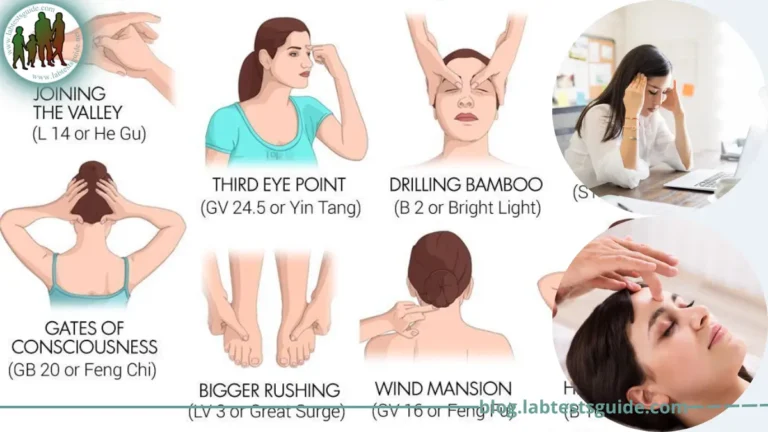Sleep is a vital aspect of our overall health and well-being. It is during sleep that our bodies repair and rejuvenate, and our minds process and consolidate memories. However, in today’s fast-paced and hectic world, many people struggle with getting adequate, restful sleep, leading to a range of health issues and decreased quality of life.

This guide aims to provide practical and effective strategies to improve sleep quality and promote better sleep habits. Whether you’re experiencing occasional sleep disturbances or chronic sleep problems, the information presented here can help you understand the importance of sleep and how to enhance your sleep experience.
What Is Sleep Hygiene?
Sleep hygiene refers to a set of practices and habits that promote good, restful sleep. Following these guidelines can significantly improve sleep quality and overall well-being.
- Consistent Sleep Schedule: Stick to a regular sleep schedule by going to bed and waking up at the same time every day, even on weekends. This helps regulate your internal body clock and promotes better sleep quality.
- Create a Relaxing Bedtime Routine: Establish a calming routine before bed to signal to your body that it’s time to wind down. Avoid stimulating activities and screens (phone, computer, TV) at least an hour before bedtime.
- Optimize Your Sleep Environment: Make your bedroom conducive to sleep by keeping it cool, dark, and quiet. Use blackout curtains, earplugs, or white noise machines if needed to block out disturbances.
- Invest in a Comfortable Mattress and Pillows: The right mattress and pillows that support your body’s natural alignment can improve comfort and reduce the likelihood of waking up with aches and pains.
- Watch Your Diet and Hydration: Avoid heavy meals, caffeine, and alcohol close to bedtime, as they can disrupt sleep. Instead, opt for light snacks and stay moderately hydrated to prevent sleep disturbances.
- Limit Naps: If you have trouble falling asleep at night, limit daytime naps, or keep them short (20-30 minutes) to avoid interfering with nighttime sleep.
- Exercise Regularly: Engaging in regular physical activity can improve sleep quality. However, avoid intense exercise close to bedtime, as it may energize your body and make it harder to fall asleep.
- Manage Stress and Anxiety: Practice relaxation techniques, such as meditation, deep breathing, or progressive muscle relaxation, to alleviate stress and calm your mind before sleep.
- Create a Sleep-Inducing Environment: Consider using soothing scents, like lavender, or playing calming music or white noise to help you drift off to sleep.
- Develop a Pre-Sleep Wind Down Routine: Engage in relaxing activities, such as reading a book or taking a warm bath, to transition your mind and body from the day’s stresses to sleep.
- Address Sleep Disorders: If you suspect you have a sleep disorder, such as insomnia or sleep apnea, consult with a healthcare professional for proper diagnosis and treatment.
- Track Your Sleep Progress: Maintain a sleep diary or use sleep tracking apps/devices to monitor your sleep patterns, identify trends, and evaluate the effectiveness of your sleep hygiene practices.
How Is Sleep Quality Measured and Assessed?
Here are some common ways sleep quality is measured and assessed.
- Sleep Questionnaires: Sleep questionnaires are self-report tools that assess various aspects of sleep quality, including sleep duration, sleep disturbances, sleep latency (time taken to fall asleep), and daytime sleepiness. Examples of popular sleep questionnaires include the Pittsburgh Sleep Quality Index (PSQI) and the Epworth Sleepiness Scale.
- Sleep Diary: A sleep diary is a daily log where individuals record information about their sleep patterns, bedtime routines, and any factors that may have affected their sleep. Keeping a sleep diary over several weeks can provide valuable insights into sleep quality and potential sleep-related issues.
- Actigraphy: Actigraphy involves wearing a small, wrist-worn device that measures movement and activity levels continuously. It provides objective data on sleep patterns, sleep-wake cycles, and sleep efficiency based on movement data. While it doesn’t directly measure brain activity like polysomnography, actigraphy is a convenient and non-intrusive method for assessing sleep quality in natural environments.
- Polysomnography (PSG): Polysomnography is considered the “gold standard” for sleep quality assessment. It is a comprehensive sleep study conducted in a sleep laboratory. During PSG, various physiological parameters are monitored, including brain waves (EEG), eye movements (EOG), muscle activity (EMG), heart rate (ECG), and respiratory efforts. PSG is particularly useful for diagnosing sleep disorders and providing detailed information about sleep architecture.
- Sleep Efficiency Calculation: Sleep efficiency is a ratio that represents the percentage of time spent asleep compared to the total time spent in bed. It is calculated by dividing total sleep time by time in bed and multiplying by 100. A sleep efficiency above 85-90% is generally considered good.
- Sleep Apps and Wearable Devices: With advancements in technology, numerous smartphone apps and wearable devices have been developed to track sleep patterns. These apps and devices often use motion sensors to estimate sleep duration, efficiency, and disturbances.
Establishing a Consistent Sleep Schedule:
Here are some tips to help you establish a consistent sleep schedule.
- Set a Fixed Bedtime and Wake-up Time: Determine a specific time to go to bed and wake up each day, including weekends. Aim to get 7-9 hours of sleep per night, depending on your individual needs.
- Be Realistic: Choose a bedtime that allows you to get enough sleep without feeling rushed or deprived. Consider your work, school, and family commitments when setting your sleep schedule.
- Gradual Adjustments: If you need to change your current sleep schedule significantly, do it gradually. Shift your bedtime and wake-up time in small increments (15-30 minutes per day) until you reach your desired schedule.
- Avoid Long Naps: While short power naps can be refreshing, avoid long naps, especially close to bedtime. Long naps can interfere with your ability to fall asleep at night.
- Stay Consistent on Weekends: Resist the temptation to stay up late or sleep in on weekends. Maintaining a consistent sleep schedule throughout the week will help regulate your body’s internal clock.
- Create a Bedtime Routine: Develop a relaxing pre-sleep routine that you follow consistently each night. Engage in calming activities like reading, taking a warm bath, or practicing relaxation techniques.
- Limit Stimulants: Avoid caffeine and nicotine in the hours leading up to bedtime, as they can disrupt your ability to fall asleep and stay asleep.
- Get Natural Sunlight Exposure: Exposure to natural light during the day helps regulate your circadian rhythm and improves your ability to sleep at night. Spend time outdoors, especially in the morning.
- Limit Blue Light Exposure: Minimize exposure to screens (phones, computers, TVs) before bedtime, as the blue light emitted by these devices can interfere with the production of the sleep hormone melatonin.
- Be Patient: It may take some time for your body to adjust to the new sleep schedule. Be patient and consistent with your efforts, and you’ll likely see improvements in your sleep quality over time.
Create a Relaxing Bedtime Routine:
Here are some steps to create a relaxing bedtime routine.
- Set a Consistent Bedtime: Establish a fixed bedtime that allows you to get the recommended 7-9 hours of sleep. Try to go to bed and wake up at the same time each day, even on weekends.
- Dim the Lights: About an hour before bedtime, start dimming the lights in your home. Lowering the lights helps stimulate the production of the sleep hormone melatonin, making it easier to fall asleep.
- Limit Screen Time: Avoid screens, such as phones, computers, and TVs, at least an hour before bedtime. The blue light from screens can disrupt your sleep-wake cycle and make it harder to fall asleep.
- Engage in Relaxing Activities: Instead of screen time, opt for relaxing activities such as reading a book, listening to soothing music, or practicing gentle yoga or stretching.
- Take a Warm Bath: A warm bath before bedtime can help relax your muscles and promote a sense of calmness, making it easier to transition into sleep.
- Practice Deep Breathing or Meditation: Spend a few minutes engaging in deep breathing exercises or meditation to clear your mind of any stress or worries that may interfere with sleep.
- Limit Food and Drink: Avoid heavy meals, caffeine, and alcohol close to bedtime, as they can disrupt sleep and lead to nighttime awakenings.
- Create a Sleep-Inducing Environment: Make your bedroom comfortable and conducive to sleep. Keep the room cool, quiet, and dark, and invest in comfortable bedding and pillows.
- Use Aromatherapy: Consider using calming scents, such as lavender or chamomile, in the form of essential oils or a diffuser to create a relaxing atmosphere in your bedroom.
- Follow the Same Routine: Consistency is key. Try to follow your bedtime routine every night to help your body recognize when it’s time to wind down and prepare for sleep.
- Write in a Journal: If you tend to have racing thoughts before bed, jot down any worries or thoughts in a journal to help clear your mind and release tension.
- Avoid Stimulating Activities: Refrain from engaging in stimulating activities like watching action-packed movies or engaging in intense discussions before bedtime.
Create a Comfortable Sleep Environment:
Here are some tips to create a comfortable sleep environment.
- Optimal Room Temperature: Keep your bedroom at a comfortable temperature, typically between 60 to 67 degrees Fahrenheit (15 to 19 degrees Celsius). A cool room can promote better sleep as it mimics the drop in body temperature that naturally occurs during the sleep cycle.
- Block Out Light: Use blackout curtains or blinds to prevent unwanted light from entering your bedroom. Darkness signals your body to produce melatonin, the hormone that regulates sleep.
- Reduce Noise: Minimize noise disruptions by using earplugs, a white noise machine, or a fan to create a calming auditory environment. Alternatively, soothing nature sounds can help some people fall asleep more easily.
- Clean and Declutter: Keep your bedroom clean and clutter-free to create a peaceful atmosphere that promotes relaxation.
- Use Calming Colors: Choose soft, calming colors for your bedroom decor, as they can have a soothing effect on your mind and contribute to a tranquil sleep environment.
- Banish Electronics: Remove electronic devices, such as TVs, computers, and smartphones, from the bedroom. The blue light emitted by screens can disrupt your sleep-wake cycle.
- Add Comforting Fabrics: Use soft and breathable bedding materials, such as cotton or bamboo, to enhance comfort and breathability while you sleep.
- Personalize the Space: Make your bedroom a space that feels comforting and personal. Add elements like cozy blankets, favorite photos, or relaxing artwork to create a calming atmosphere.
- Control Humidity: Maintain a comfortable level of humidity in your bedroom. Dry air can lead to discomfort, while excessive humidity may promote mold growth.
- Keep Pets Off the Bed: While cuddling with pets can be comforting, they may disrupt your sleep with movement or noise. Consider setting boundaries for pets in the bedroom.
- Consider Room Fragrance: Use relaxing scents, such as lavender or chamomile, through diffusers or aromatherapy to create a calming ambiance.
Watch Your Diet and Hydration:
Here are some tips to optimize your diet and hydration for better sleep.
- Avoid Heavy Meals Before Bed: Consuming large, heavy meals close to bedtime can cause discomfort and disrupt your sleep. Try to finish eating at least 2-3 hours before you plan to go to bed.
- Choose Sleep-Friendly Snacks: If you’re hungry before bedtime, opt for light and easily digestible snacks. Good choices include a small bowl of cereal with milk, a banana, yogurt, or a handful of nuts.
- Limit Caffeine and Nicotine: Both caffeine and nicotine are stimulants that can interfere with your ability to fall asleep and reduce sleep quality. Avoid them, especially in the evening.
- Be Mindful of Alcohol Intake: While alcohol may initially make you feel drowsy, it can disrupt your sleep cycle and lead to fragmented and less restful sleep. Limit alcohol consumption, especially close to bedtime.
- Stay Hydrated, but Moderately: Dehydration can cause discomfort and disrupt sleep. Drink enough water throughout the day, but try to reduce liquid intake close to bedtime to avoid waking up for bathroom trips.
- Watch Your Spicy Foods: Spicy or acidic foods can cause heartburn or indigestion, which may interfere with your ability to fall asleep comfortably.
- Consider Herbal Teas: Some herbal teas, such as chamomile or valerian root tea, have calming properties that may promote relaxation and improve sleep quality.
- Eat a Balanced Diet: A well-balanced diet rich in fruits, vegetables, whole grains, lean proteins, and healthy fats can support overall health, including sleep.
- Be Mindful of Timing: Pay attention to the timing of your meals. Eating too late in the evening can lead to indigestion and disrupt your sleep.
- Limit Fluid Intake Before Bed: Minimize your fluid intake in the hour or two before bedtime to reduce the likelihood of waking up for bathroom trips during the night.
Exercise Regularly:
Here are some key points about the benefits of regular exercise for better sleep.
- Improve Sleep Duration: Studies have shown that people who exercise regularly tend to experience longer and more restful sleep compared to those who lead a sedentary lifestyle.
- Enhance Sleep Quality: Regular physical activity can lead to deeper and more restorative sleep, improving the overall quality of your rest.
- Reduce Insomnia: Exercise has been shown to be effective in reducing symptoms of insomnia and helping individuals fall asleep more easily.
- Stress Reduction: Exercise is a natural stress-reliever and can help reduce anxiety and tension, making it easier to relax and fall asleep.
- Release Endorphins: Exercise triggers the release of endorphins, which are natural mood elevators that can contribute to a sense of well-being and relaxation.
- Regulate Circadian Rhythm: Physical activity can help regulate your body’s internal clock, promoting a more consistent sleep-wake cycle.
- Timing Matters: While any exercise is beneficial, some people find that exercising earlier in the day is more conducive to better sleep. Exercising too close to bedtime for some individuals may lead to increased alertness and make it harder to fall asleep.
- Choose Activities You Enjoy: Engaging in activities you enjoy increases the likelihood that you’ll stick to your exercise routine, which can lead to better long-term sleep benefits.
- Be Consistent: Aim for at least 150 minutes of moderate-intensity exercise or 75 minutes of vigorous-intensity exercise per week, spread across several days. Consistency is essential for reaping the sleep benefits of regular exercise.
- Be Mindful of Evening Workouts: If you prefer evening workouts, opt for activities that are less intense and avoid high-impact exercises that might interfere with your ability to wind down before bedtime.
- Listen to Your Body: Pay attention to how your body responds to exercise. If you notice that certain types of exercise negatively affect your sleep, consider adjusting your routine or the timing of your workouts.
Manage Stress and Anxiety:
Here are some effective strategies to manage stress and anxiety for better sleep.
- Practice Relaxation Techniques: Incorporate relaxation techniques into your daily routine, such as deep breathing exercises, progressive muscle relaxation, or guided meditation. These practices can help calm your mind and body before bedtime.
- Create a Worry Journal: If you find that racing thoughts keep you awake at night, keep a journal next to your bed to write down any worries or concerns. Putting your thoughts on paper can help release tension and make it easier to let go of anxieties.
- Establish a Bedtime Routine: Develop a consistent pre-sleep routine that includes relaxing activities, such as reading a book, taking a warm bath, or practicing yoga. Following the same routine each night can signal your body that it’s time to wind down.
- Limit Exposure to Stressful Content: Avoid watching or reading stressful or disturbing content before bedtime, as it can heighten anxiety and negatively impact your sleep.
- Cognitive Behavioral Therapy (CBT): Consider seeking CBT from a qualified therapist if stress and anxiety are significantly affecting your sleep. CBT can help identify and change negative thought patterns and behaviors that contribute to sleep difficulties.
- Manage Time and Prioritize Tasks: Organize your day and prioritize tasks to reduce feelings of overwhelm and stress. Setting realistic goals and breaking tasks into smaller, manageable steps can help alleviate anxiety.
- Stay Active During the Day: Engage in regular physical activity, as exercise is an excellent stress reliever. However, avoid intense workouts close to bedtime, as they may make it harder to wind down.
- Limit Caffeine and Alcohol Intake: Both caffeine and alcohol can exacerbate feelings of anxiety and interfere with sleep. Reduce or eliminate their consumption, especially in the evening.
- Practice Mindfulness: Incorporate mindfulness practices into your daily life, such as mindful breathing or mindfulness meditation. Being present in the moment can help reduce stress and promote relaxation.
- Seek Support: Talk to friends, family, or a professional counselor about your feelings and concerns. Sometimes, sharing your worries can help reduce stress and provide perspective.
- Establish a Worry Time: If you find yourself ruminating on worries while trying to sleep, designate a specific time during the day to address your concerns, so they don’t interfere with bedtime.
- Limit Screen Time: Minimize screen time, especially before bed, as the content and blue light from screens can increase anxiety and disrupt sleep.
Limit Naps and Improve Sleep Efficiency:
Here’s how you can achieve these goals.
- Limit Daytime Naps: While naps can be beneficial for some people, especially when they’re short (around 20-30 minutes), excessive or long naps, particularly in the late afternoon or evening, can interfere with your ability to fall asleep at night. If you feel the need to nap during the day, try to keep it short and avoid napping too close to your bedtime.
- Set a Consistent Sleep Schedule: Establish a regular sleep schedule by going to bed and waking up at the same time each day, even on weekends. Consistency helps regulate your body’s internal clock and improves sleep efficiency.
- Avoid Stimulants Before Bed: Avoid caffeine and other stimulants, as they can disrupt your ability to fall asleep and stay asleep. Limit your caffeine intake, especially in the afternoon and evening.
- Create a Relaxing Bedtime Routine: Develop a calming pre-sleep routine that includes activities like reading, listening to soft music, or practicing relaxation techniques. A consistent bedtime routine can signal your body that it’s time to wind down and prepare for sleep.
- Optimize Your Sleep Environment: Make your bedroom comfortable, cool, dark, and quiet to promote better sleep. Invest in a supportive mattress and pillows that suit your preferences.
- Avoid Screen Time Before Bed: Minimize exposure to screens (phones, computers, TVs) at least an hour before bedtime, as the blue light from screens can interfere with the production of the sleep hormone melatonin.
- Be Mindful of Evening Activities: Avoid engaging in stimulating or stressful activities close to bedtime, as they can make it harder to relax and fall asleep.
- Limit Alcohol Intake: While alcohol may initially make you feel drowsy, it can disrupt your sleep and reduce sleep efficiency. If you drink alcohol, do so in moderation and avoid doing it right before bedtime.
- Address Underlying Sleep Disorders: If you consistently have trouble falling asleep or staying asleep, or if you wake up feeling unrefreshed, consider consulting a healthcare professional to rule out any underlying sleep disorders.
- Practice Sleep Restriction: If you find that you spend a lot of time in bed but still struggle to fall asleep or stay asleep, consider sleep restriction therapy. This technique involves limiting the time you spend in bed to match the actual amount of sleep you are getting, gradually increasing it as your sleep improves.
Address Sleep Disorders:
Here are some common sleep disorders and potential approaches to address them.
Insomnia: Insomnia is characterized by difficulty falling asleep, staying asleep, or waking up too early and not being able to fall back asleep. To address insomnia, consider implementing good sleep hygiene practices, such as maintaining a consistent sleep schedule, creating a relaxing bedtime routine, and avoiding stimulants before bedtime. Cognitive-behavioral therapy for insomnia (CBT-I) is a highly effective non-medication treatment option that helps address the underlying factors contributing to sleep difficulties.
Sleep Apnea: Sleep apnea is a condition in which a person’s breathing is repeatedly interrupted during sleep. It can lead to fragmented sleep and daytime sleepiness. Treatment options for sleep apnea include continuous positive airway pressure (CPAP) therapy, oral appliances, positional therapy, weight management, and, in severe cases, surgery.
Restless Legs Syndrome (RLS): RLS is characterized by an uncontrollable urge to move the legs, often accompanied by uncomfortable sensations. Managing RLS involves lifestyle changes, such as avoiding triggers like caffeine, nicotine, and certain medications, as well as engaging in regular exercise. Medications may also be prescribed to alleviate symptoms.
Narcolepsy: Narcolepsy is a neurological disorder that causes excessive daytime sleepiness and sudden sleep attacks. Treatment for narcolepsy typically includes medications, lifestyle adjustments, and scheduled naps to manage daytime sleepiness.
Parasomnias: Parasomnias are disruptive sleep-related behaviors, such as sleepwalking, night terrors, and sleep-related eating disorder. Treatment for parasomnias may involve improving sleep hygiene, creating a safe sleep environment, and, in some cases, medication.
Circadian Rhythm Disorders: Circadian rhythm disorders result from a misalignment between an individual’s internal body clock and external cues like light and darkness. Treatments may involve bright light therapy, timed melatonin supplements, and behavior adjustments to regulate the sleep-wake cycle.
Periodic Limb Movement Disorder (PLMD): PLMD involves repetitive leg movements during sleep, leading to sleep disruptions. Treatment options include medication, lifestyle changes, and addressing underlying medical conditions.
Create a Relaxing Sleep Environment:
Here are some tips to create a relaxing sleep environment.
- Optimal Room Temperature: Keep your bedroom at a comfortable temperature, usually between 60 to 67 degrees Fahrenheit (15 to 19 degrees Celsius). A cool room can promote better sleep and prevent overheating.
- Block Out Light: Use blackout curtains or blinds to keep your bedroom dark and free from unwanted light. Darkness signals your body to produce melatonin, the hormone that regulates sleep.
- Reduce Noise: Minimize noise disruptions by using earplugs, a white noise machine, or a fan to create a calming auditory environment. Alternatively, soothing sounds like nature sounds or gentle music can help some individuals relax.
- Invest in Comfortable Bedding: Choose soft and comfortable bedding, including a supportive mattress and pillows that suit your sleep preferences. High-quality bedding can significantly impact your comfort and sleep quality.
- Declutter and Organize: Keep your bedroom tidy and free from clutter. A clean and organized space can create a more peaceful atmosphere conducive to relaxation.
- Use Soothing Colors: Opt for soft, calming colors for your bedroom decor, such as pastel shades or cool earth tones. These colors can help create a tranquil and serene atmosphere.
- Avoid Electronics: Remove electronic devices, such as TVs, computers, and smartphones, from your bedroom. The blue light emitted by screens can interfere with the production of melatonin and disrupt your sleep.
- Create a Relaxing Scent: Use aromatherapy to enhance your sleep environment. Scents like lavender, chamomile, or ylang-ylang can promote relaxation and improve sleep quality.
- Incorporate Comforting Textures: Use soft and comforting textures in your bedding and decor, such as plush blankets or cozy rugs, to create a warm and inviting sleep space.
- Personalize the Space: Add personal touches to your bedroom, such as favorite photos, artwork, or decor that brings you joy and comfort.
- Keep Pets Off the Bed: While cuddling with pets can be comforting, they may disrupt your sleep with movement or noise. Consider setting boundaries for pets in the bedroom.
- Manage Humidity: Keep the humidity in your bedroom at a comfortable level to prevent discomfort during sleep.
FAQs:
How much sleep do I need?
The recommended amount of sleep varies with age. Adults typically require 7 to 9 hours of sleep per night, while teenagers may need 8 to 10 hours, and young children and infants need even more.
How can I improve my sleep if I have trouble falling asleep?
Establish a consistent sleep schedule, create a relaxing bedtime routine, limit screen time before bed, and avoid caffeine and stimulating activities close to bedtime. Consider relaxation techniques like deep breathing or progressive muscle relaxation.
What can I do if I wake up frequently during the night?
Avoid large meals and excessive fluids before bedtime, limit alcohol and caffeine consumption, and create a comfortable sleep environment. If sleep disturbances persist, consider seeking medical advice to rule out underlying sleep disorders.
How can I manage stress to improve my sleep quality?
Practice relaxation techniques, such as meditation and deep breathing, engage in regular exercise, maintain a consistent sleep schedule, and consider seeking support from friends, family, or a mental health professional.
Is it okay to take naps during the day?
Short naps (around 20-30 minutes) can be beneficial for some people and can help improve alertness and focus. However, avoid long naps or napping too close to bedtime, as they may interfere with nighttime sleep.
Can my diet affect my sleep quality?
Yes, certain foods and drinks can impact sleep. Avoid heavy meals and stimulants like caffeine and nicotine before bedtime. Opt for sleep-friendly snacks and consider herbal teas with calming properties.
Should I exercise to improve my sleep quality?
Yes, regular exercise can promote better sleep quality and help manage stress and anxiety. Aim for at least 150 minutes of moderate-intensity exercise or 75 minutes of vigorous-intensity exercise per week.
How can I create a relaxing sleep environment?
Set a comfortable room temperature, block out light with blackout curtains, reduce noise with earplugs or white noise machines, and invest in supportive and comfortable bedding. Remove electronic devices from the bedroom and use calming scents with aromatherapy.
When should I seek medical advice for sleep problems?
If you experience chronic sleep difficulties, excessive daytime sleepiness, or suspect you may have a sleep disorder (such as sleep apnea or restless legs syndrome), it’s essential to consult a healthcare professional or a sleep specialist for proper evaluation and treatment.
Conclusion:
In conclusion, improving sleep quality is essential for overall well-being and optimal functioning. By incorporating good sleep hygiene practices such as maintaining a consistent sleep schedule, creating a relaxing bedtime routine, managing stress, and cultivating a sleep-conducive environment, individuals can promote restful and restorative sleep. Addressing sleep disorders and adopting healthy lifestyle habits, including regular exercise and a balanced diet, further contribute to better sleep quality. Prioritizing sleep and making positive changes to sleep habits can lead to improved physical and mental health, increased daytime alertness, and a higher overall quality of life.






